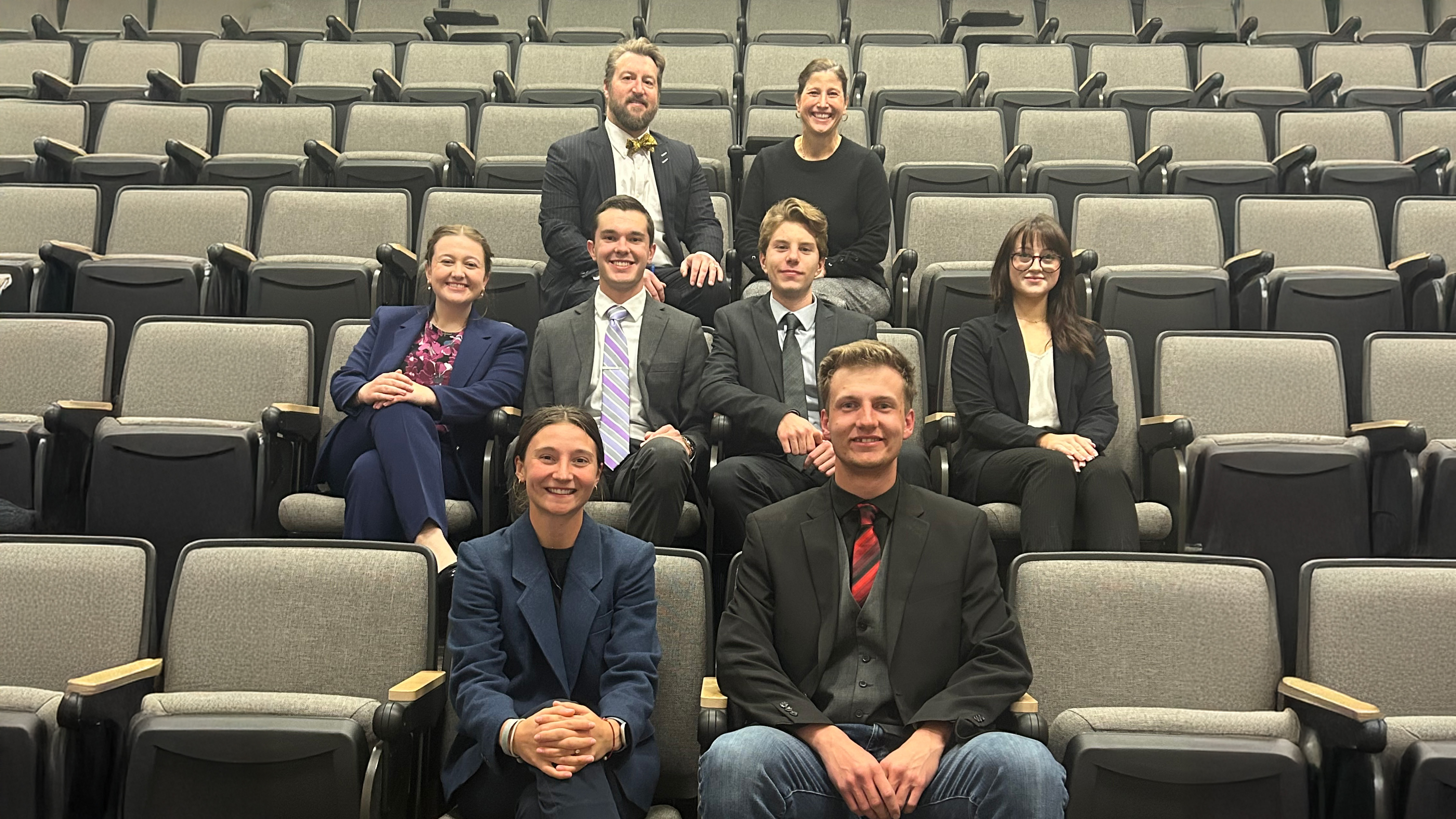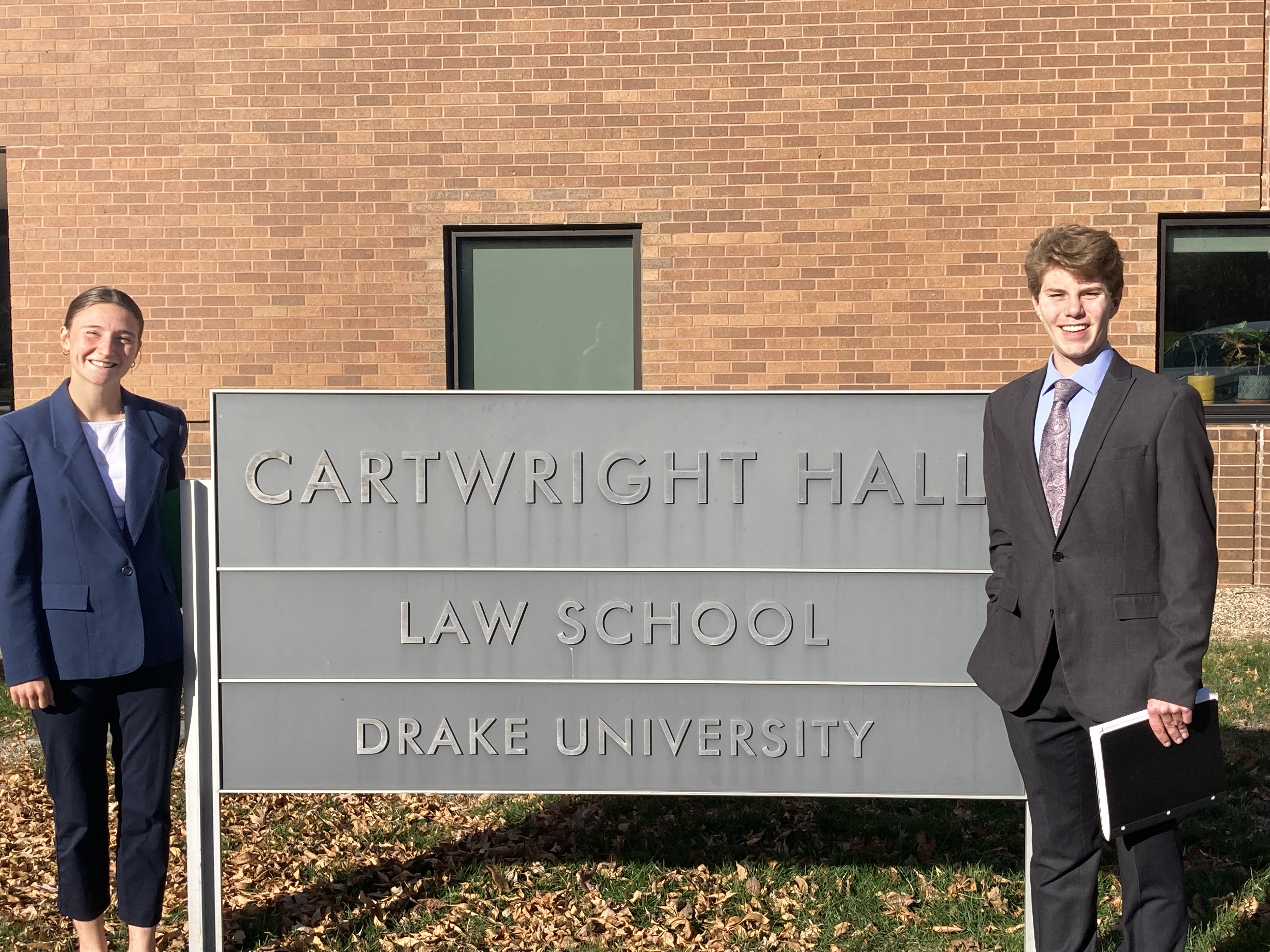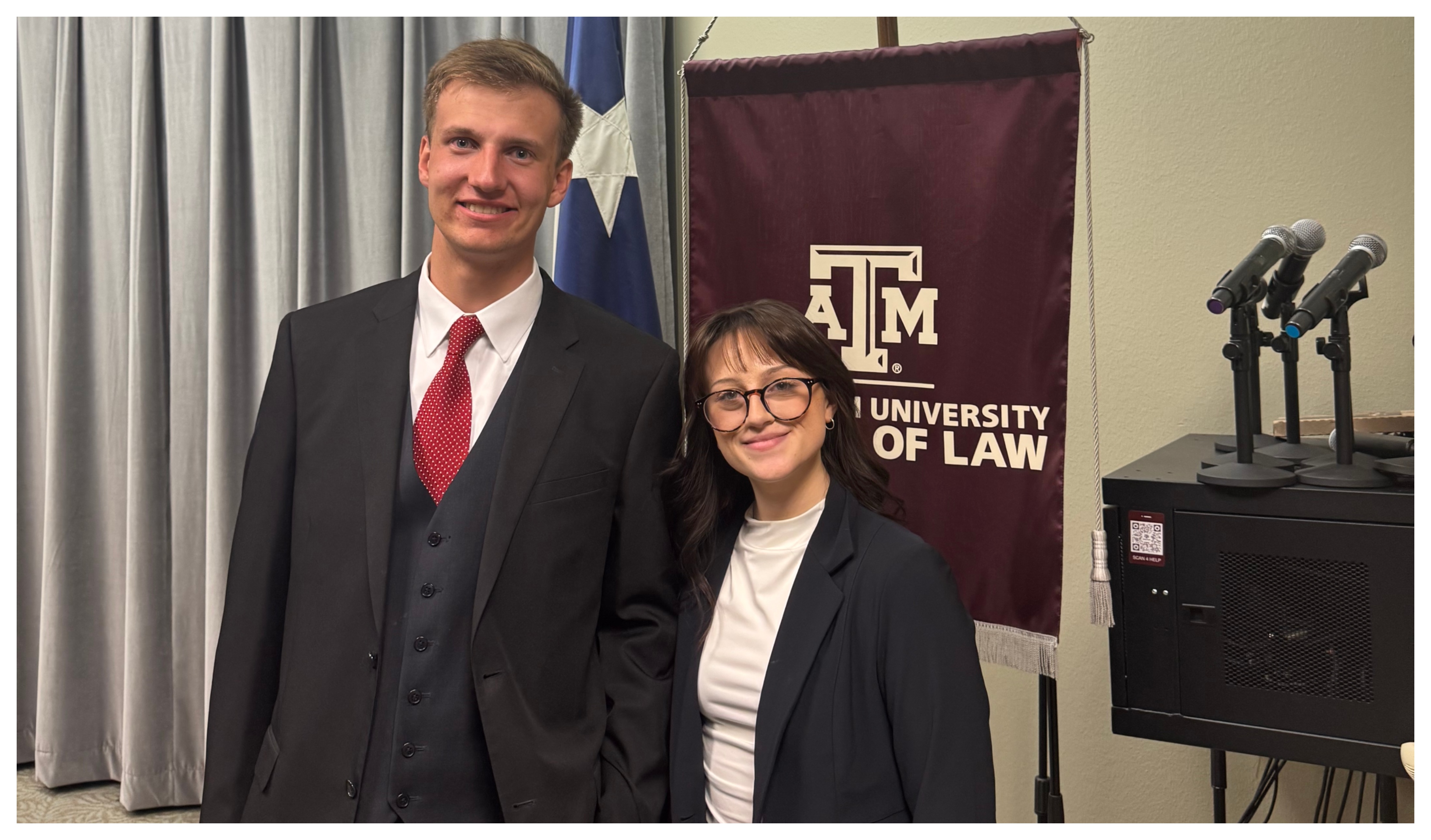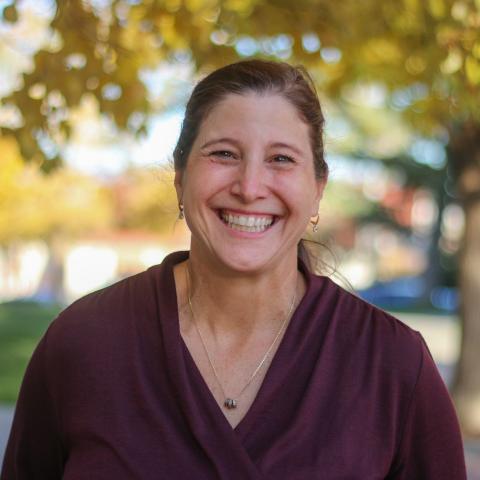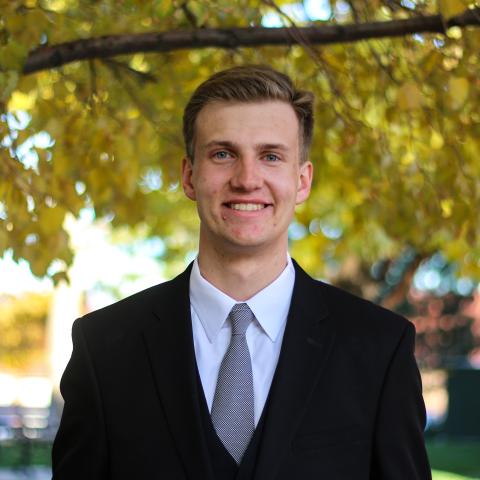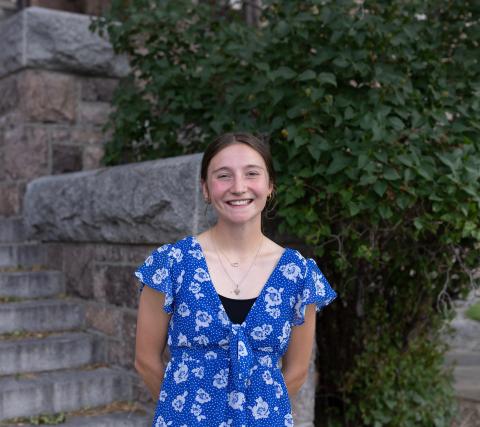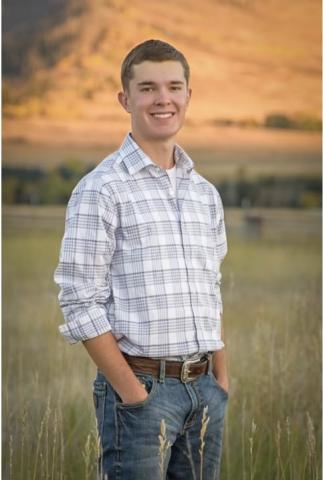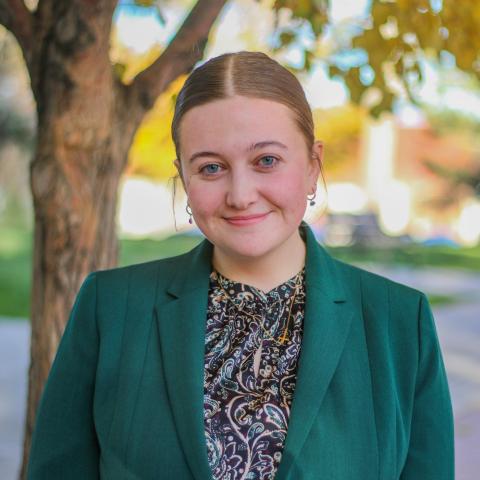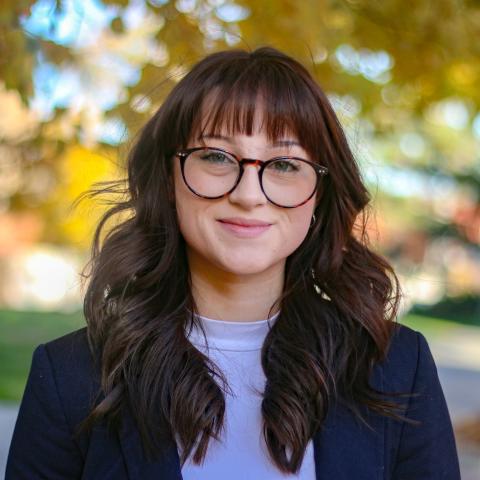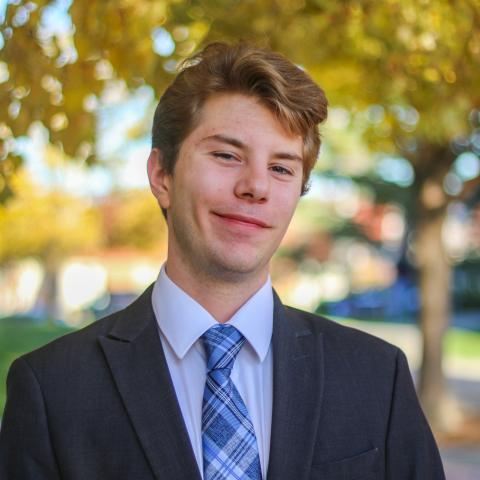The American Moot Court Association (AMCA) is the largest intercollegiate moot court organization for undergraduate students in the United States, organizing regional and national tournaments to foster skills in legal reasoning, oral advocacy, and brief writing. Each year, the AMCA releases a fictional case problem, typically involving two constitutional issues (e.g., First Amendment rights, Fifth Amendment protections). Case problems often reflect contemporary legal issues, such as free speech or privacy rights, making arguments relevant to real-world legal debates.
Carroll College has a two-semester training program for AMCA. During the Spring semester, PO 380, Appellate Advocacy (2 credits), introduces students to moot court and focuses on detailed analysis of the previous year’s AMCA problem. The objective of the course is to produce students who: 1) Understand the American legal system as it pertains to the litigation of legal disputes. 2) Are able to effectively prepare and deliver persuasive legal arguments before a decision-making audience. 3) Are able to effectively write persuasive legal arguments for law- trained readers. 4) Are able to apply critical thinking to assess the merits of both sides of a legal dispute. Students train in the areas outlined below on Case Preparation, Oral Advocacy & Brief Writing.
During the Fall semester, those individuals who are invited to be on the Carroll College Moot Court Team are enrolled in PO 380, Moot Court (1 credit), which focuses on Training for the AMCA competition and involves the following areas:


